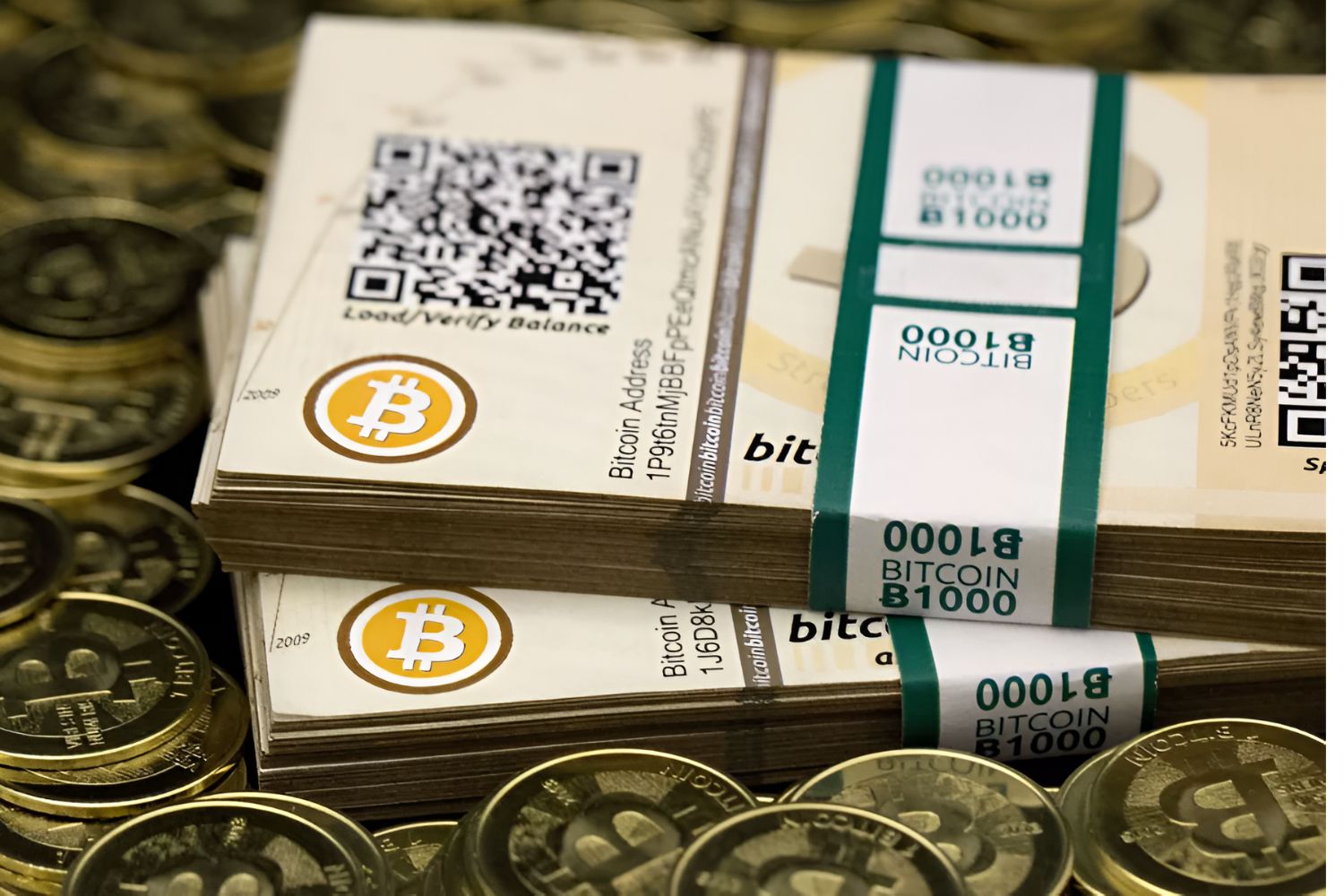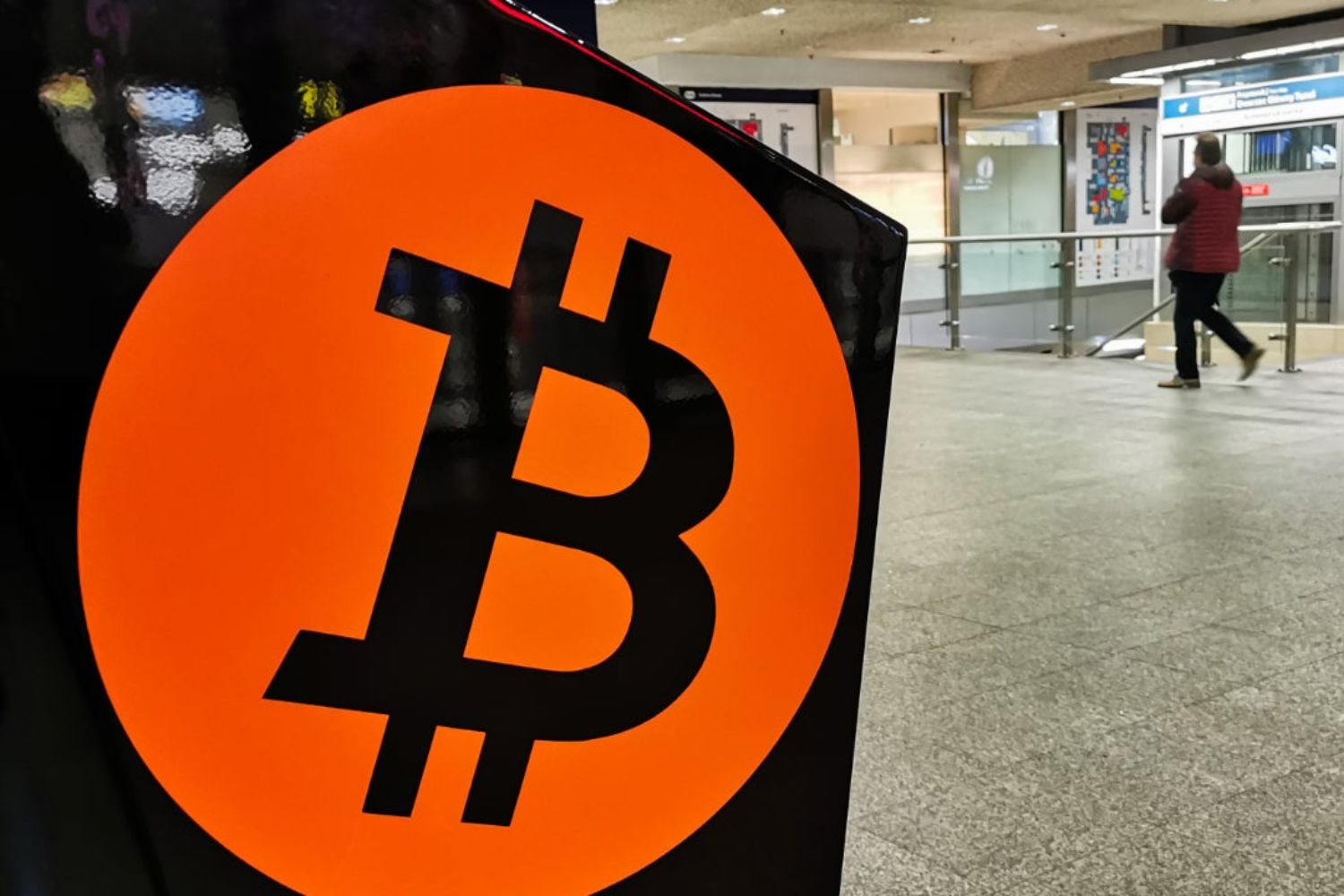Introduction
A Bitcoin maximalist is an individual who strongly believes in the superiority of Bitcoin over any other cryptocurrency or digital asset. These individuals advocate for Bitcoin as the only true and worthy form of decentralized currency, rejecting the value and potential of alternative coins or tokens, commonly referred to as altcoins. Bitcoin maximalists argue that Bitcoin possesses unique technological features, network effects, and an established brand that set it apart from other digital currencies.
Bitcoin maximalism emerged from the early days of cryptocurrency when a small group of enthusiasts began supporting Bitcoin as the primary solution for the financial revolution. Over time, this belief has gained traction and influence within the crypto community, attracting a dedicated following of Bitcoin maximalists.
Bitcoin maximalists uphold several key beliefs and principles that form the foundation of their ideology. These include the belief in Bitcoin’s decentralized nature, scarcity as a store of value, security through proof-of-work mining, resistance to censorship and government control, and the potential for Bitcoin to disrupt traditional financial systems.
Despite Bitcoin’s success and dominance in the crypto market, the rise of alternative cryptocurrencies and blockchain projects has sparked debates and criticism about Bitcoin maximalism. Critics argue that Bitcoin’s scalability issues, high transaction fees, and slow confirmation times limit its potential as a practical currency. They advocate for the development and adoption of altcoins that offer solutions to these challenges, such as faster transaction speeds and lower fees.
This article will delve into the principles and beliefs of Bitcoin maximalism, analyze the reasons behind their staunch support for Bitcoin, discuss the controversies surrounding this ideology, and explore the role of Bitcoin maximalists within the broader cryptocurrency community. We will also highlight notable Bitcoin maximalists who have contributed to the development and promotion of Bitcoin as a dominant force in the digital finance landscape.
Definition of a Bitcoin Maximalist
A Bitcoin maximalist is an individual who firmly believes in the ideological and technological superiority of Bitcoin as the ultimate cryptocurrency. These individuals advocate for Bitcoin as the sole and most important digital asset, dismissing the value and potential of other cryptocurrencies, commonly known as altcoins.
Bitcoin maximalists assert that Bitcoin possesses unique attributes that make it a more secure and reliable form of decentralized digital currency compared to its competitors. They argue that Bitcoin’s decentralized nature, consensus mechanism based on proof-of-work mining, and strong network effects give it an edge over other cryptocurrencies.
Bitcoin maximalists emphasize Bitcoin’s scarcity as a key aspect of its value proposition. With a limited supply cap of 21 million coins, Bitcoin is considered to be a deflationary asset that can serve as a store of value in the long term. They perceive altcoins, which often have no or unlimited supply caps, as lacking this essential feature that makes Bitcoin more attractive.
Bitcoin maximalists also emphasize the importance of Bitcoin’s established brand and name recognition. As the first and most well-known cryptocurrency, Bitcoin has attained a level of credibility and recognition that sets it apart from other digital assets. Bitcoin maximalists believe that this brand recognition gives Bitcoin a significant advantage in terms of adoption and acceptance.
It is important to note that Bitcoin maximalism does not imply a total rejection of technological innovation or advancements in the cryptocurrency space. While Bitcoin maximalists prioritize Bitcoin and its continued development, they may still support and appreciate innovations and solutions that contribute to the Bitcoin ecosystem.
Bitcoin maximalism is seen by its proponents as a necessary and firm stance to ensure the preservation and success of Bitcoin as the leading cryptocurrency. They believe that focusing on Bitcoin’s development and adoption is crucial for the widespread acceptance and global impact of decentralized digital currencies.
Now that we have defined what a Bitcoin maximalist is and examined their core beliefs and principles, let’s explore the reasons behind their unwavering support for Bitcoin and the controversies surrounding this ideology.
Key Beliefs and Principles of Bitcoin Maximalists
Bitcoin maximalists adhere to several key beliefs and principles that form the foundation of their ideology. These beliefs shape their unwavering support for Bitcoin as the ultimate cryptocurrency and guide their actions within the crypto community.
1. Decentralization: Bitcoin maximalists strongly value the decentralized nature of the Bitcoin network. They believe that decentralization eliminates the need for trusted intermediaries and puts the power back into the hands of individuals, enabling financial sovereignty.
2. Scarcity and Store of Value: Bitcoin maximalists emphasize the scarcity of Bitcoin as a crucial aspect of its value proposition. With a limited supply cap of 21 million coins, Bitcoin is considered a deflationary asset that can serve as a secure store of value over time.
3. Security through Proof-of-Work: Bitcoin’s consensus algorithm, proof-of-work (PoW), is a vital principle for Bitcoin maximalists. They argue that PoW ensures the network’s security, as it requires miners to invest significant computational power, making it highly resistant to attacks and manipulation.
4. Resistance to Censorship and Government Control: Bitcoin maximalists view Bitcoin as a means to counter censorship and governmental control over financial transactions. They believe that a decentralized and borderless currency like Bitcoin can empower individuals to freely transact without interference or surveillance.
5. Disruption of Traditional Financial Systems: Bitcoin maximalists envision a future where Bitcoin disrupts traditional financial systems. They believe that Bitcoin’s potential to offer financial services, store value, and facilitate peer-to-peer transactions can challenge traditional banking systems and empower individuals globally.
Bitcoin maximalists argue that these principles set Bitcoin apart from other cryptocurrencies. While they acknowledge technological advancements and innovations in the broader crypto space, they firmly believe that Bitcoin embodies these principles to the highest degree, making it the preeminent choice.
Next, we will examine the reasons for the strong allegiance of Bitcoin maximalists to Bitcoin and explore the criticisms and controversies surrounding this ideology.
Reasons for Being a Bitcoin Maximalist
There are several reasons why individuals become Bitcoin maximalists and passionately advocate for Bitcoin as the superior cryptocurrency. These reasons stem from the unique features and characteristics of Bitcoin that set it apart from other digital assets. Here are some key motivations for being a Bitcoin maximalist:
1. First-Mover Advantage: Bitcoin was the first decentralized cryptocurrency, pioneering the concept of digital money. This first-mover advantage has given Bitcoin a significant headstart in terms of brand recognition, adoption, and infrastructure development, which Bitcoin maximalists believe cannot be easily replicated by altcoins.
2. Network Effects: Bitcoin has the largest and most robust network of users, developers, and businesses in the cryptocurrency space. Bitcoin maximalists argue that this network effect creates a virtuous cycle, attracting more participants and resources to the Bitcoin ecosystem and reinforcing its dominance.
3. Established Infrastructure: Bitcoin’s long-standing presence in the cryptocurrency market has allowed for the development of a robust infrastructure, including wallets, exchanges, payment processors, and merchant services. Bitcoin maximalists believe that this infrastructure provides a solid foundation for continued growth and adoption.
4. Security and Reliability: Bitcoin maximalists appreciate the security provided by Bitcoin’s proof-of-work consensus mechanism. The extensive computational work required for mining ensures the network’s resilience to attacks and manipulation. Bitcoin’s blockchain has also proven to be highly reliable, functioning without any major disruptions for over a decade.
5. Store of Value: Bitcoin’s limited supply and deflationary nature make it an attractive store of value for long-term investors. Bitcoin maximalists view its scarcity as a key feature that supports its potential to appreciate in value over time, especially amid global economic uncertainty and inflationary pressures.
6. Technological Advancements: While Bitcoin may not have the same level of technical features and capabilities as some altcoins, Bitcoin maximalists argue that it maintains a strong focus on security, stability, and simplicity. They believe that Bitcoin’s conservative approach to implementing new features ensures the integrity of the network.
7. Philosophical alignment: Bitcoin maximalists often align with the philosophical principles of decentralization, individual freedom, and resistance to censorship. They see Bitcoin as a tool for challenging traditional financial systems, empowering individuals, and fostering financial sovereignty.
These reasons, combined with the belief that Bitcoin offers the best combination of technological innovation, security, and network effects, drive individuals to become Bitcoin maximalists and wholeheartedly support Bitcoin over other cryptocurrencies.
However, Bitcoin maximalism is not without its critics and controversies. In the next section, we will explore the criticisms surrounding Bitcoin maximalism and the debates it has ignited within the crypto community.
Criticisms and Controversies Surrounding Bitcoin Maximalism
Bitcoin maximalism, as an ideology, is not immune to criticisms and controversies within the cryptocurrency community. While Bitcoin maximalists firmly believe in the superiority of Bitcoin, others have raised valid concerns and alternative viewpoints. Let’s explore some of the criticisms surrounding Bitcoin maximalism:
1. Lack of Innovation: Critics argue that Bitcoin maximalism can hinder innovation in the broader cryptocurrency space. By prioritizing Bitcoin as the ultimate solution, they claim that Bitcoin maximalists may ignore or dismiss potential advancements offered by altcoins and emerging technologies.
2. Scalability Challenges: Bitcoin’s scalability issues, particularly its limited transaction processing capacity, high fees, and slow confirmation times, have been a subject of criticism. Critics claim that these limitations hinder Bitcoin’s potential as a practical currency for day-to-day transactions.
3. Reliance on Brand Recognition: Bitcoin maximalists often cite Bitcoin’s established brand and name recognition as a competitive advantage. However, critics argue that this reliance on brand recognition may limit the ability to objectively assess and consider the merits of other cryptocurrencies with innovative features.
4. The Rise of Altcoins: The emergence of altcoins and blockchain projects that aim to address Bitcoin’s limitations has fueled debates within the crypto community. Some argue that altcoins have the potential to offer solutions to scalability, speed, and cost-effectiveness that Bitcoin currently struggles with.
5. Market Volatility and Risk: Bitcoin maximalism can be seen as a risky strategy, as it involves putting all faith and investment in a single cryptocurrency. Critics highlight the dangers of concentration risk and emphasize the importance of diversifying one’s crypto portfolio to manage potential volatility and mitigate risk.
6. Tribalism and Divisiveness: Bitcoin maximalism has been associated with a certain level of tribalism and divisiveness within the crypto community. Critics argue that this mindset can inhibit collaboration and hinder the progress of the overall blockchain and cryptocurrency ecosystem.
It is important to note that not all critics dismiss Bitcoin or deny its importance. Many criticisms stem from a belief in the value of a diverse and competitive cryptocurrency landscape, where different projects can coexist and address various niches and use cases.
The controversies and debates surrounding Bitcoin maximalism reflect the dynamic and rapidly evolving nature of the cryptocurrency space. As the market continues to mature and new technologies emerge, it is essential to consider alternative viewpoints and engage in constructive discussions to facilitate innovation and progress.
Next, we will explore the relationship between Bitcoin maximalism and other cryptocurrencies, specifically altcoins, and delve into the ongoing debate between Bitcoin maximalists and proponents of alternative digital assets.
Bitcoin Maximalism vs. Altcoins and Other Cryptocurrencies
The debate between Bitcoin maximalists and proponents of altcoins and other cryptocurrencies is one of the most significant discussions within the crypto community. Bitcoin maximalists firmly believe that Bitcoin is the superior cryptocurrency, while advocates for altcoins argue for the potential of these alternative digital assets. Let’s explore the key aspects of this debate:
1. Technological Features: Bitcoin maximalists argue that Bitcoin’s simplicity and robustness make it a more secure and reliable digital currency compared to altcoins. They argue that Bitcoin’s focus on security and stability outweighs the more experimental and complex features offered by some altcoins.
2. Market Dominance: Bitcoin maximalists emphasize Bitcoin’s dominant position in terms of market capitalization, liquidity, and adoption. They believe that Bitcoin’s network effects and recognition give it a significant advantage over other cryptocurrencies, making it the preferred choice for investors and users alike.
3. Use Case and Value Proposition: Bitcoin maximalists often assert that Bitcoin’s primary use case is as a decentralized store of value and digital gold. They argue that Bitcoin’s limited supply and scarcity make it an ideal hedge against inflation, while altcoins may have a broader range of use cases but lack the same level of trust and recognition.
4. Scalability and Transaction Speed: Critics of Bitcoin maximalism highlight the scalability challenges faced by Bitcoin, such as high fees and slow confirmation times. They argue that altcoins, with their focus on improving transaction speeds and scalability, have the potential to offer more practical solutions for day-to-day transactions.
5. Diversification and Innovation: Proponents of altcoins and other cryptocurrencies argue that diversification is key to managing risk in the crypto market. They believe that supporting a variety of projects fosters healthy competition, encourages innovation, and allows for the exploration of different use cases and technological advancements.
6. Collaborative Ecosystem: Critics of Bitcoin maximalism emphasize the importance of building a collaborative ecosystem where various cryptocurrencies can complement each other. They argue that a healthy balance of Bitcoin and altcoins can cater to different needs and preferences, fostering a more inclusive and dynamic cryptocurrency space.
While the debate between Bitcoin maximalism and altcoins can often be contentious, it is essential to recognize that both perspectives contribute to the overall growth and development of the cryptocurrency market. The coexistence of Bitcoin and other cryptocurrencies allows for experimentation, innovation, and the exploration of various blockchain applications.
As the cryptocurrency ecosystem evolves, it is likely that some altcoins will fade away, while others will thrive and offer unique contributions. While Bitcoin maximalists maintain their firm belief in Bitcoin’s supremacy, it is important to remain open to the potential value and advancements brought by other cryptocurrencies.
In the next section, we will delve into the role of Bitcoin maximalists within the broader cryptocurrency community and explore notable Bitcoin maximalists and their contributions.
The Role of Bitcoin Maximalists in the Crypto Community
Bitcoin maximalists play a significant role in shaping the narrative and direction of the crypto community. Their passionate advocacy for Bitcoin as the superior cryptocurrency influences discussions, debates, and decision-making processes within the industry. Let’s explore the key roles of Bitcoin maximalists:
1. Setting Trends and Standards: Bitcoin maximalists help establish Bitcoin as the benchmark for cryptocurrencies. By highlighting Bitcoin’s market dominance, security, and adoption, they influence the perception of what constitutes a successful and trustworthy digital asset.
2. Promoting Adoption and Education: Bitcoin maximalists are often at the forefront of promoting Bitcoin adoption and educating the general public about its benefits. Through community engagement, writing, speaking engagements, and grassroots efforts, they aim to increase awareness and facilitate understanding of Bitcoin’s potential.
3. Preventing Scams and Fraud: Bitcoin maximalists advocate for a cautious and skeptical approach towards altcoins and other cryptocurrencies. They actively warn against potential scams, Ponzi schemes, and misleading claims prevalent in the crypto space, aiming to protect newcomers and ensure responsible investing.
4. Contributing to Bitcoin Development: Bitcoin maximalists often actively participate in the development and improvement of the Bitcoin protocol. They engage in discussions, contribute to open-source projects, and support initiatives aimed at enhancing the security, scalability, and usability of the Bitcoin network.
5. Influencing Investment Decisions: Bitcoin maximalists’ unwavering belief in Bitcoin’s long-term value and potential influences investment decisions within the crypto community. Their endorsement of Bitcoin as a store of value encourages individuals and institutions to consider including Bitcoin in their investment portfolios.
6. Challenging Altcoins and Driving Innovation: Bitcoin maximalists, by affirming their position, foster competition and encourage altcoins to innovate and prove their worth. By setting a high bar for altcoins to surpass, Bitcoin maximalists indirectly contribute to the overall progress and development of the cryptocurrency space.
7. Stimulating Debate and Critical Thinking: Bitcoin maximalists provoke discussions and debates within the crypto community. Their arguments and perspectives invite critical thinking, forcing proponents of altcoins to articulate their viewpoints and challenge the status quo.
While Bitcoin maximalists have received criticism for their strict adherence to Bitcoin, their commitment to Bitcoin’s principles and development has undoubtedly played a significant role in the growth and acceptance of cryptocurrencies as a whole.
Now, let’s explore notable figures in the crypto space who are prominent Bitcoin maximalists and have made significant contributions to the advancement of the ideology.
Notable Bitcoin Maximalists and Their Contributions
Over the years, several notable figures have emerged as vocal proponents of Bitcoin maximalism, contributing to its prominence and influence within the crypto community. Their dedication and contributions have helped shape the narrative surrounding Bitcoin as the superior cryptocurrency. Let’s explore some of these notable Bitcoin maximalists and their contributions:
1. Andreas Antonopoulos: Andreas Antonopoulos is a well-known advocate for Bitcoin and the author of “Mastering Bitcoin.” He has dedicated his career to educating the public about Bitcoin’s potential and the importance of financial sovereignty. Antonopoulos has been a strong proponent of Bitcoin’s decentralized nature, privacy, and censorship resistance.
2. Saifedean Ammous: Saifedean Ammous, an economist and author of “The Bitcoin Standard,” has played a critical role in popularizing the concept of Bitcoin as digital gold. He emphasizes Bitcoin’s scarcity as a store of value and its potential to disrupt traditional financial systems. Ammous’s book has been influential in shaping the Bitcoin maximalist narrative.
3. Michael Saylor: Michael Saylor, CEO of MicroStrategy, made headlines in 2020 for his company’s significant investment in Bitcoin. He has become a prominent advocate for Bitcoin as a long-term store of value and has encouraged other institutions to consider adding Bitcoin to their balance sheets. Saylor’s strong support for Bitcoin has helped increase its institutional adoption.
4. Max Keiser: Max Keiser, a broadcaster and journalist, has long been a vocal supporter of Bitcoin. Through his show, “The Keiser Report,” he educates the public about Bitcoin’s potential to challenge traditional financial systems and promote individual financial sovereignty. Keiser has traversed the globe, championing Bitcoin’s decentralized nature and highlighting its disruptive power.
5. Anthony Pompliano: Anthony Pompliano, co-founder of Morgan Creek Digital, actively advocates for Bitcoin and educates the public through his popular podcast and social media presence. He has been instrumental in driving institutional interest in Bitcoin as a hedge against inflation and a store of value. Pompliano’s efforts have contributed to Bitcoin’s growing recognition among mainstream investors.
6. Pierre Rochard: Pierre Rochard, a Bitcoin advocate and software engineer, has made significant contributions to the Bitcoin community. He is an advocate for the Lightning Network, a scaling solution for Bitcoin, and has provided educational resources and tools to help users navigate and understand Bitcoin’s technology.
7. Jimmy Song: Jimmy Song, a Bitcoin developer, educator, and author of “Programming Bitcoin,” has played a vital role in advancing Bitcoin’s development and education. He conducts workshops and has contributed to numerous Bitcoin projects. Song’s technical expertise and commitment to Bitcoin’s principles have made him a respected figure in the crypto community.
These notable Bitcoin maximalists have demonstrated their unwavering support for Bitcoin and have contributed to its growth, adoption, and understanding. Through their advocacy, education, technical contributions, and public influence, they have helped shape the narrative surrounding Bitcoin maximalism and its prominence within the broader crypto community.
As the cryptocurrency ecosystem continues to evolve, their contributions will undoubtedly continue to play a crucial role in shaping the future of Bitcoin and the broader cryptocurrency industry.
Conclusion
In conclusion, Bitcoin maximalism represents a belief in the ideological and technological superiority of Bitcoin over other cryptocurrencies. Bitcoin maximalists firmly advocate for Bitcoin as the preeminent digital currency, emphasizing its decentralized nature, scarcity, security, and potential to disrupt traditional financial systems. They play a crucial role in shaping the narrative and direction of the crypto community, setting trends, promoting adoption, and contributing to the development of the Bitcoin ecosystem.
While Bitcoin maximalism has garnered support and influence, it is not without criticism. Critics argue for the importance of diversity, innovation, and the potential that altcoins and other cryptocurrencies bring to the table. They urge caution against dismissing or ignoring the advancements offered by alternative digital assets.
Notable Bitcoin maximalists, such as Andreas Antonopoulos, Saifedean Ammous, Michael Saylor, Max Keiser, Anthony Pompliano, Pierre Rochard, and Jimmy Song, have played significant roles in driving Bitcoin adoption, education, and development. Their contributions have helped solidify Bitcoin’s position as the leading cryptocurrency and shape its reputation within the broader crypto community.
As the cryptocurrency ecosystem continues to evolve, the debate between Bitcoin maximalism and alternative digital assets is likely to persist. It is crucial to recognize that both perspectives contribute to the overall growth and progress of the industry. The coexistence of Bitcoin and altcoins allows for innovation, competition, and exploration of different use cases, ultimately benefiting the broader adoption and development of cryptocurrencies as a whole.
Whether one embraces Bitcoin maximalism or supports a diversified portfolio of cryptocurrencies, the importance of critical thinking, constructive discussions, and continued exploration of blockchain technology cannot be overstated. By remaining open-minded and fostering collaboration, the crypto community can achieve advancements that drive the industry forward and fulfill the potential of decentralized finance.

























